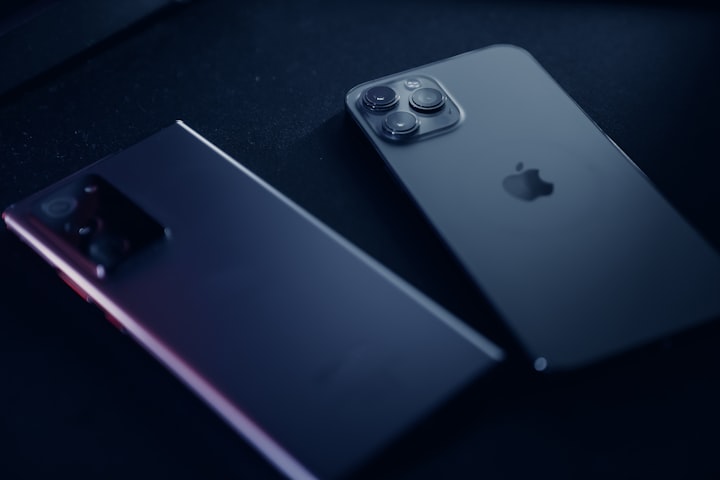
The Compelling Advantages That Make iPhones Stand Out Over Samsung Smartphones
The debate over the superiority of iPhones over Samsung smartphones or vice versa has been a longstanding and passionate one, with users on both sides staunchly defending their preferences. Each brand has its unique strengths and weaknesses, and the choice between an iPhone and a Samsung device ultimately depends on individual preferences, priorities, and requirements. In this comprehensive exploration, we will delve into multiple aspects where iPhones are often considered superior to Samsung devices.
Ecosystem Integration:
One of the standout advantages of iPhones is the seamless integration within Apple's ecosystem. The ecosystem encompasses iPhones, iPads, Macs, Apple Watches, and Apple TV, all designed to work together harmoniously. Features like AirDrop, Handoff, and iCloud facilitate a consistent and convenient user experience across multiple devices. For instance, you can start an email on your iPhone and seamlessly continue it on your Mac without missing a beat. iMessage, FaceTime, and the integration with AirPods further contribute to a cohesive ecosystem that many users find appealing. This level of integration is not as prevalent in the Android ecosystem, providing iPhone users with a unique and tightly knit digital experience.
Software Updates and Support:
Apple's control over both hardware and software allows for a more streamlined and consistent update process. When a new iOS version is released, it is typically available for all supported devices simultaneously. This stands in stark contrast to the Android ecosystem, where device manufacturers and carriers may delay or skip updates, leading to fragmentation and a lack of uniformity in the user experience. The timely and uniform availability of updates ensures that all eligible iPhones, regardless of their age, receive the latest features, improvements, and security patches. This contributes to a more reliable and long-lasting user experience, a factor often cited by iPhone enthusiasts.
Additionally, Apple's commitment to providing long-term software support sets iPhones apart. iPhones receive iOS updates for several years, ensuring that even older devices continue to benefit from the latest features and security enhancements. In contrast, the Android ecosystem, with its diverse range of manufacturers and models, often results in a shorter and less consistent update life cycle for many devices. This long-term support is a critical consideration for users who prioritize keeping their devices up-to-date and secure.
App Store Quality Control:
The Apple App Store is known for its stringent app review process, which aims to maintain a high standard of quality and security. Apps undergo thorough scrutiny before being made available to users, reducing the risk of malicious software infiltrating the platform. While the Google Play Store has implemented measures to enhance security, the App Store's meticulous curation is often cited as a reason why some users prefer iPhones. The assurance of a secure and reliable app environment adds another layer of trust for iPhone users, emphasizing the importance Apple places on maintaining the integrity of its app ecosystem.
Design and Build Quality:
Apple is renowned for its meticulous attention to design and build quality. iPhones often feature premium materials, such as glass and aluminum, resulting in a device that not only looks and feels premium but is also durable. The aesthetic appeal of iPhones, characterized by clean lines and a minimalist design, is a significant draw for many users. Apple's commitment to creating devices that are both visually pleasing and structurally robust contributes to a sleek and cohesive user experience.
The design philosophy extends beyond the physical hardware to the software interface, with iOS providing an intuitive and user-friendly experience. The consistent and polished design language across the iPhone lineup creates a sense of familiarity for users upgrading from older models, contributing to a positive and seamless transition.
Privacy and Security:
Apple places a strong emphasis on user privacy and security, setting itself apart in the smartphone industry. Features like Face ID and Touch ID provide secure and convenient authentication, and the incorporation of technologies like the Secure Enclave ensures the protection of sensitive user data. Apple's commitment to user privacy is evident in its stance on data encryption and its refusal to create backdoors for law enforcement. This steadfast dedication to privacy has resonated with users who prioritize the protection of their personal information.
While the Android ecosystem has made strides in enhancing security, with features like Google Play Protect, some users appreciate Apple's unwavering commitment to safeguarding user data. Apple's business model, which relies heavily on hardware sales rather than data monetization, aligns with the company's focus on prioritizing user privacy and security.
Resale Value:
iPhones generally retain their value better than many Android devices, including those from Samsung. Several factors contribute to this phenomenon, including the perception of Apple devices as durable and the strong demand for used iPhones in the secondhand market. The combination of long-term software support, consistent build quality, and the desirability of the Apple brand contributes to iPhones maintaining their value over time.
For consumers who regularly upgrade their devices, the higher resale value of iPhones can be a significant financial consideration. The ability to recoup a substantial portion of the initial investment when selling or trading in an iPhone for a newer model can make the overall cost of ownership more favorable compared to some Android devices.
Conclusion:
In conclusion, the question of whether iPhones are better than Samsung smartphones is intricate and multifaceted. The strengths of iPhones, including ecosystem integration, software updates, app store quality control, design, privacy, and resale value, make them a compelling choice for many users. However, it's crucial to acknowledge that Samsung devices, and Android smartphones in general, have their own merits, such as a wide range of hardware choices, extensive customization options, and innovations in features.
The decision between an iPhone and a Samsung device ultimately hinges on individual preferences, priorities, and the overall user experience that aligns with an individual's needs and values. Both Apple and Samsung continue to push the boundaries of innovation, providing users with a diverse array of choices in the highly competitive smartphone market. As technology evolves, so too will the features and capabilities of these devices, ensuring that users have an ever-expanding landscape of options to consider when making their smartphone choices.
About the Creator
cobra
Passionate journalist dedicated to uncovering compelling stories, bringing fresh perspectives, and fostering understanding through accurate and engaging reporting.






Comments
There are no comments for this story
Be the first to respond and start the conversation.